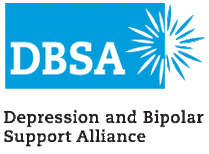DEPRESSION
Depression is one of the most common mental disorders in the US. It can negatively impact one's quality of life, their relationships, and their ability to perform at work or school. Depression is different from situational sadness or grief, which are normal human emotions. It is believed to be a combination of genetics and environment that predisposes a person to depression. The diagnostic symptoms of a major
depressive episode include:
Depressed mood
Lack of energy, motivation, and/or concentration
Loss in interest in things that usually are interesting
Loss of pleasure in things that usually bring pleasure
Problems with sleep
Problems with eating (no appetite OR overeating)
Poor self image
Feelings of low self worth
Recurrent thoughts of self harm or suicide
Anyone who experiences the above symptoms for 2 weeks or more should IMMEDIATELY seek professional help. Anyone who is experiencing suicidal thoughts PLEASE CONTACT:
Depression is treatable, although for some people it is a lifelong condition that has to be MANAGED. Medication and talk therapy are the standard of care for depressed people. Because depression creates such a problem with motivation, many people with depression do not continue with their treatment, and suffer in silence. Also, many people cannot afford regular therapy. There are some options for cost-reduced therapy that is based on income. Some churches also offer free or inexpensive counseling. There are also support groups that meet for those with depression and bipolar disorder. We believe this is one area that we should be working on with the WE LIVE ON organization. The Peer Support Model that has proven effective for substance abuse disorder may also be a way to draw depressed people into a sense of connection with others. We will be looking into establishing new networks like this to help fight the social isolation and stigma of mental illness. We would like to ask our readers to contact us with information on any available programs that use peer support, or other ideas you may have to initiate more programs like this. Remember, it is HARD to get a depressed person to seek help. Sometimes we need to be mindful and offer to be there for people who seem to be depressed. Below are some links to LOCAL (Western North Carolina) resources:








